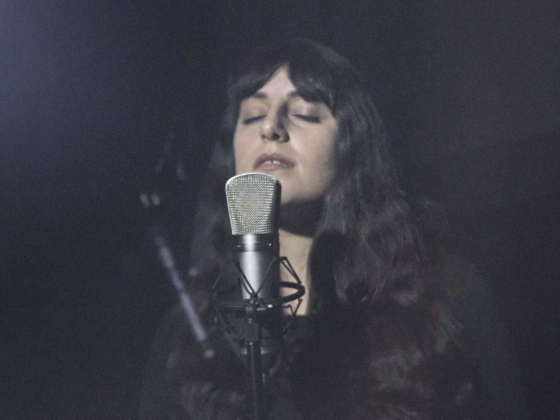The past year has seen the nightlife industry face never-before-seen challenges; a damning report from the Night Time Industries Association back in February suggests that unless changes are made to support the industry soon, the aftermath will be devastating. We’ve all been dreaming of the first event back — of sweat dripping from the ceiling, funktion one sound systems booming, and chewing a stranger’s ear off in the smoking area. But what does the road ahead really look like? Despite Boris Johnson’s dubious roadmap out of the pandemic — which sees clubs potentially reopening, and no social distancing measures by the 21st of June — things still feel a lifetime away from normality. The first question that springs to mind is: how realistic is this date actually going to be? After the industry has been failed time and time again over the last 12 months, what’s going to change? The NTIA’s report, detailing the effects the pandemic has had on the industry, offers a look into what could be ahead if we aren’t provided with the necessary support.
A foreword from Jeff Smith in the report states, “Let us not define arts and culture too tightly or traditionally, and remember that our world-leading music venues, nightclubs, bars and pubs are cornerstones of our community”. Although I understand the sentiment, why aren’t some of these spaces viewed as hugely important to arts and culture? We shouldn’t have to loosen the definition— club culture plays a huge part in the UK’s framework. Music is one of the few things that the UK absolutely excels in — it’s the home of Jungle, Garage, Grime, Dubstep, Bassline and beyond — why should we have to “loosen the definition” of culture, to allow clubs to be socially acceptable? More than just a place to get drunk, for many of us, nightclubs are sacred spaces, with the dancefloor acting as a catalyst to melt away concerns or troubles. They are where we’ve formed some of our closest friendships, hold some of our dearest memories, and shaped opinions that we still carry years later — be that about music, politics or anything in between — nightclubs are fundamentally important spaces for growth.
Club culture in the UK has been fighting a losing battle for years now— with property developments being prioritised, drug-related deaths causing concern and a government that could not care less about the arts—COVID-19 was the straw that broke the camel's back. In 2018 alone, 21% of UK clubs closed their doors. The All Party Parliamentary Group investigation into the effects of COVID-19 on UK nightlife concluded that “without urgent government support, nightlife businesses face ‘extinction’ that will see urban centres become ‘ghost towns’ and hobble wider economic recovery”. Perhaps even more damning was the revelation that 85% of people working in the sector are considering leaving the industry — an industry that many work in for love, not money. Another statistic suggests that throughout the pandemic, on average, nightclubs made 51% of their workforce redundant. Who’s going to be left to pick up the pieces? It doesn’t matter how much someone loves something, people don’t survive on love. If we continue to force these people out of the industry, solely due to the devastating lack of support, there isn’t going to be a scene to return to.
Liverpool promoters Radium spoke to EARMILK about the next steps for small events, offering some insight into what the next few months might have in store. What’s clear is this: any sort of return to normality is heavily dependent on the rollout of the vaccine. Whilst the roadmap out of the pandemic could be realistic, “the only way back into club life is with the vaccine being a success — trying to police masks in a club, or heavily reducing the capacity to try and enforce social distancing is a logistical nightmare”. Meanwhile, punters are getting excited at the thought of clubs reopening with rapid testing on the door — but promoters have been left with yet another hurdle to face in an already uphill struggle. The Radium team explained that “whilst it may be a necessary measure to ensure safety in clubs, solutions such as on-the-door testing may be way out of budget for smaller venues and promoters. You also have to factor in the effect this will have on ticket pricing. Costing something like this into a night’s budget will in turn lead to an increase to ticket prices, which runs the very real risk of putting people off from attending the event”. As expected, grassroots promoters will suffer the most should these measures come into place, and “though it may be a good thing to have events reopening with these measures in place, it will make it difficult for many, only really benefitting the big fish. In an ideal world, the vaccine will allow us the freedom to return to normal club life.”
"What's next?" depends on a lot of things, and only time will tell, but help is needed now. The nighttime economy is the UK’s fifth largest industry, contributing £66 billion per year to the UK economy. They present significant safe-spaces for the LGBTQ+ community, with the NTIA report suggesting that nighttime venues “offer a place for all manner of people to come together as a community, supported by hardworking individuals, some of whom have given their lives to creating environments where people can enjoy themselves and feel included.” A survey conducted for the report found that two-thirds of businesses in the nighttime economy expect to make further redundancies over the next 12 months. The APPG have supplied some crucial suggestions to try and save the industry, including a concerted effort to retain and deepen skills and expertise in the sector. Rather than encouraging people to retrain in other sectors, as our government did in peak ignorance, we should be encouraging people not to give up a career they excel in by offering them the support that’s required. The APPG report recommends that the furlough scheme needs to be extended until the sector can reopen in full capacity. Furthermore, the government need to provide a solution to commercial renting issues, and introduce a government-backed insurance scheme for when safe operation is allowed, amongst a multitude of other things.
It's not all negative, though. One step in the right direction is a new government programme, designed to gauge how venues will need to run to safely reopen. Venues participating in the programme will test specific settings to collect evidence and best practice. A crucial step on the road to reopening, Liverpool’s role in the programme includes a nightclub, comedy club and business events venue. Though the road ahead is uncertain, and the 21st of June still feels just out of reach — if the vaccine rollout continues successfully, the end could just about be in sight.









